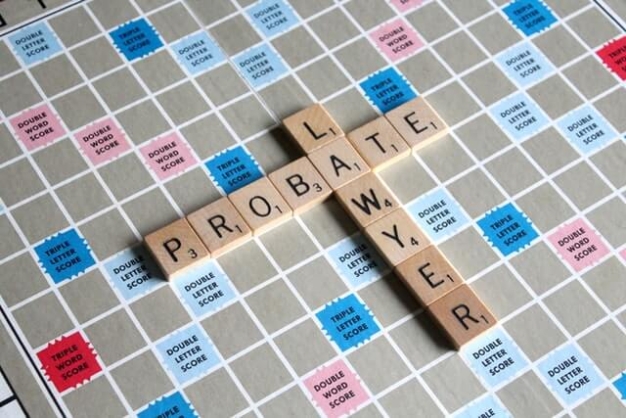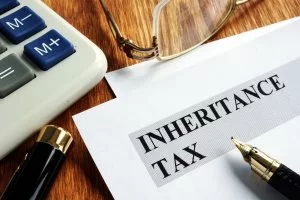What Happens to Debt When you Die?

Contact
It is a common misconception that a person’s debts die with them. After you die, your debts become the responsibility of your estate. Find out more in this article.
Jan AtkinsonTable of Contents
It is a common misconception that a person’s debts die with them. After you die, your debts become the responsibility of your estate. Find out more in this article.
Do your debts die with you?
Are credit card debts, personal loans, unsecured debts, mortgages and other outstanding debts cancelled on death? The short answer is ‘no’ – but you can be reassured that your loved ones will not have to pay off your debts out of their own pockets when you die.
At Osbornes Law, it is a common misconception among clients that a person’s debts die with them. On death, your debts become the responsibility of the executors who will be dealing with the estate. Those debts must be taken into account when the executors value the estate.
Dying with outstanding debt is not uncommon. According to Age UK, one in 50 people in their 70s has problem debts; and millions of older people increasingly struggle to pay their bills. The fact is, many people in their latter years still carry debts; and the wealthy are not immune.
Related blog posts:
- What to Do When Someone Dies
- Beware of appointing your children as executors
- Selling a Probate Property | Selling Parents’ House After Death
How do debts become part of the estate?
On death, the executors (‘administrators’ if there is no will) are responsible for valuing the estate. This means determining the value of all the assets as well as the debts outstanding at the date of death. To do this, the executors will need to gather as much information and documentation as possible.
Where there is no will, the administrator must apply for letters of administration – a legal document that gives them the authority to deal with the deceased’s assets, debts and distribute the estate according to the rules of intestacy.
It is for the executors to settle the deceased person’s outstanding debts out of the estate funds, whether those are credit card bills, personal loans unpaid taxes or a mortgage – before making payments to the beneficiaries.
Think of it like an estate ‘pot’ containing an amount of cash representing the total value of the deceased’s assets. Out of that pot, an amount is extracted to pay off the total debts he or she owed at the date of death.
The balance – once inheritance tax, debts, and other estate administration expenses are paid – is available for distribution to the beneficiaries.
If inheritance tax is due, it must be settled with HMRC before the grant of probate or letters of administration can be issued. Executors are legally responsible for ensuring this is paid on time, even if the estate doesn’t have immediate funds available.
Who is responsible for joint debts?
In the case of joint debts, the responsibility for the outstanding amount will depend on the circumstances. For joint debts such as bank loans and joint overdrafts, the survivor will inherit responsibility for the entire debt.
However, joint loans such as mortgages and other secured loans on property that was co-owned as tenants in common (ie each owning a distinct share), the estate may be responsible for the deceased’s proportion of the outstanding mortgage. It would very much depend upon the mortgage lenders’ terms. We can help with reviewing the necessary paperwork to determine this.
- Related article: The Benefits of Early Inheritance Tax Planning
Is the executor of the estate responsible for debt?
Executors and administrators share similar responsibilities when it comes to debts. The main difference is that executors are named in a will, while administrators must be appointed by the court via letters of administration.
As executor, you’re responsible for arranging for the deceased’s debts to be settled out of the estate funds. You need not worry about being personally liable to pay off those debts so long as you are careful to deal with things responsibly in accordance with your legal responsibilities.
Only if you are negligent will you be held personally responsible for losses to the estate. If you have any concerns, our probate team are here to provide reassurance.
Statutory advertisements
It is usually recommended that executors place notices, known as section 27 notices, in the Gazette and newspapers local to the deceased to ask previously unknown creditors to come forward. If creditors do not come forward within 2 months of that date, then the executors can distribute the estate safe in the knowledge that they have done what they can do to find unknown creditors and will therefore not be personally liable for that debt.
These notices do not apply to known creditors, that debt would be payable whether the notices have been placed or not.
The notices do not protect beneficiaries, and creditors could pursue a claim against the beneficiaries directly.
Notifying lenders after death
Most lenders have a bereavement notification process, including online forms and dedicated bereavement support teams to guide you through the next steps. You will usually need to provide a copy of the death certificate and details about the deceased’s estate.
How to manage beneficiaries’ expectations
It’s understandable that beneficiaries want to receive their share as soon as possible. But where there are debts to be settled first – you may need to carefully manage their expectations with early communication and understanding.
The reality is, an estate with significant debts will reduce the amount available for distribution and the beneficiaries could receive much less than they may be expecting.
Discuss the issue with them and indicate the amount they might realistically receive when you’re eventually able to distribute the estate. Distribution could also take longer than expected. We know these conversations can be tough, but early communication can minimise the risk of misunderstanding and potential disputes later.
In some cases, there may be nothing left for the beneficiaries. An estate is insolvent where the debts exceed the value of the assets – in which case the beneficiaries will receive nothing. To understand more about unclaimed assets, visit our guide.
As executor, your duties including managing beneficiaries’ expectations throughout the administration of the estate. Difficult conversations may become necessary, and our specialist probate lawyers can support you.
Paying debts and outstanding expenses
If the estate is solvent, it is wise to pay any outstanding debts as soon as possible. This includes other expenses, such as funeral expenses, unsecured debts and any inheritance tax due. While some creditors may agree to freeze the interest pending settlement, clearing debts promptly will reduce the amount of interest that accrues.
Often, by the time the executors can settle an estate debt, creditors may have already spent months chasing the money they are owed. They may even have instructed debt collectors. In our experience, creditors are more minded to respond leniently if they are regularly updated and executors communicate promptly and openly.
So, make early contact with all known creditors to find out the amount owing at the date of death, discuss freezing the interest and provide regular updates to manage their expectations. Unnecessary delays may cost more in interest payable leaving less available for the beneficiaries.
When will executors need to reduce a beneficiary’s share?
Once the executors have paid off the estate debts, the executors will need to calculate how the remaining amount should be distributed. Usually, this will be straightforward – but what if there is not enough left in the estate to pay all the beneficiaries in full?
In these situations, the law provides for gifts to be reduced in a certain order depending on the nature of the estate. Where the will specifies the order in which legacies should be paid, specific legacies take priority and general legacies are then reduced proportionately (with no residue left over).
If the estate has significant debts, the residuary beneficiaries could end up receiving little or nothing. We know this would most likely not have been the testator’s intention and can lead to testy but necessary conversations with the beneficiaries. However, the beneficiaries may be able to vary the terms of a will. A probate solicitor can help executors facilitate these negotiations.
How long do creditors have to collect a debt from an estate?
Creditors usually have six years from the date the debt became due to claim the debt. After this limitation period has expired, the creditor cannot take legal action to recover the debt in court, unless there are exceptional circumstances.
There are exceptions to the 6-year rule, for example a mortgage on a property may have a longer limitation period. Also, the limitation period may be extended if certain action is taken, such as acknowledging the debt in writing or making a partial repayment.
Administering an insolvent estate
If you’re an executor dealing with an estate with significant debts, you may be concerned the debts will be greater than the value of assets. It’s important to understand that handling an insolvent estate can be particularly challenging; and if you pay creditors in the wrong order (even if accidentally) you could be held personally liable.
We suggest consulting a specialist solicitor early on to prevent the risk of this happening.
If the estate is insolvent, you have legal duties in respect of the creditors. The rules of bankruptcy set out the specific order of priority in which groups of creditors must be paid. Secured creditors are at the top, followed by funeral and then testamentary expenses, preferential creditors and unsecured creditors (in that order).
You will need to liaise with all creditors (and any debt collection agencies involved) to negotiate the terms of repayment. If you haven’t already, explain to the beneficiaries that they will not receive any funds from the estate.
Importantly, get in touch with lawyers experienced in dealing with insolvent estate. We can ensure you are protected from the risk of mistakes and personal liability.
Paying inheritance tax: What executors need to know
One of the executor’s most important responsibilities is to ensure that inheritance tax (IHT) is calculated correctly and paid to HMRC.
In the UK, inheritance tax is usually payable if the estate is worth more than £325,000 (the nil-rate band), although exemptions may apply – such as transfers between spouses or donations to charity.
The tax is normally due within six months of the end of the month in which the person died. Failure to pay on time can lead to interest and penalties.
In some cases, the executor may need to pay inheritance tax before accessing estate funds. HMRC may allow payment in instalments for certain assets like property. We can help you navigate the options and avoid personal liability.
What to do if you suspect fraud
Executors should be alert to anything about the estate that may seem unusual as it could indicate fraudulent activity. Sadly, there are individuals who treat the death of a friend or relative as an opportunity to commit fraud and help themselves to the individual’s personal possessions and money.
So if, for example, you identify an unexpected debt or an inflated debt, bank account discrepancies or dubious transfers of property, or valuable items have gone missing – don’t ignore it.
Or if the deceased was known for being careful with money during their lifetime, but appears to have uncharacteristically used credit cards towards the end of their life, you should consider whether they may have been the victim of fraud.
As executor, you have a legal responsibility to investigate these types of red flags and to protect the estate and its beneficiaries from fraud. Appropriate investigations must be carried out promptly; and where your investigations confirm your suspicions you should seek reimbursement on behalf of the estate.
This may be directly from the fraudster or via an insurance policy or compensation scheme. We can advise on the options open to you to recover the cash or property.
As an executor, it is vital to remain on alert to the possibility of fraud – particularly as relatives may be grieving and unaware of anything untoward before or since their loved one’s death.
Can an executor use the deceased person’s credit card?
As executor, you must also avoid the potential risk of inadvertent fraud on the estate. Using a deceased person’s credit card without proper authorisation can be considered fraud.
Where immediate estate expenses arise, such as funeral costs or urgent bills, the executors should use funds from the estate’s bank account or other available assets to cover these costs. Accurate and clear records of all financial transactions since the start of the estate administration must be kept.
Taking professional advice from experienced solicitors
Dealing with the estate on your own might seem cheaper and preserve more money for the beneficiaries. However, save for the simplest of estates, handling the administration without specialist support can be challenging, overwhelming and risky.
Talking to a solicitor may save the estate money in the long run, helping you navigate this process more easily and quickly. With the support of professional advisers, we can ensure debts are properly dealt with and ensure more money goes to the beneficiaries.
To book an appointment with an expert, contact us by:
- Filling in our online enquiry form; or
- Calling us on 020 7485 8811
Share this article


“The practice at Osbornes often acts for a wide range of HNW individuals and families on complex estate and trust cases, frequently dealing with cross-border estates.”
“Jan is highly regarded by other private client lawyers: honestly, she’s the lawyer other lawyers would choose to deal with their own affairs. She keenly identifies the issues to focus on and delivers.”
FAQs
What happens to council tax when someone dies?
There are rules in place to stop or reduce Council Tax payments when someone dies, depending on the circumstances.
If the deceased was the sole occupant, council tax will usually be exempt from the date of death until either:
Someone else moves in, or Probate or letters of administration are granted, and six months have passedThis exemption can apply for up to six months after probate is granted, provided the property remains unoccupied and is still owned by the estate.
If the deceased lived with others, responsibility for paying council tax may pass to the remaining occupants. If the other resident was a spouse, civil partner or adult child, they may become liable for the ongoing bill – but may be entitled to discounts, such as the 25% single person discount, if they now live alone.
It’s important to notify the local council as soon as possible about the death. They’ll guide you on exemptions, discounts or any refunds due. Failing to do so could result in unnecessary charges to the estate.
If you’re unsure, our probate solicitors can help you understand how council tax and other property-related bills should be dealt with during estate administration.
What happens if the deceased was living in rented property?
If the deceased was living in rented accommodation, their tenancy does not end automatically upon death. What happens next depends on the type of tenancy and whether anyone else was living with them at the time.
Private Rented PropertyFor most private tenancies:
The executor or administrator of the estate should notify the landlord as soon as possible. Rent may still be payable from the estate until the tenancy is legally ended — usually by serving notice or reaching an agreement with the landlord. If there are rent arrears, the landlord can make a claim against the estate. Council or Housing Association TenancyIn social housing, different rules apply:
A surviving partner or close family member who was living with the tenant may have the right to succeed the tenancy, depending on the tenancy agreement and council rules. Any outstanding rent or bills become a liability of the estate, not of surviving family members.Are bereavement benefits available if someone dies with debts?
Yes – certain bereavement benefits may be available to close family members, even if the person who died had outstanding debts. These benefits can provide financial support during a difficult time, but it’s important to understand they are not used to repay the deceased’s debts – they are for the survivor’s benefit. In the UK they are:
Bereavement Support Payment
This benefit is available to spouses or civil partners of someone who died in the last 21 months, provided the deceased:
Paid National Insurance contributions, and Was under State Pension age at the time of deathBereavement Support Payment is not means-tested, and you can still claim it if the deceased had debts or the estate is insolvent. It currently includes:
A lump sum payment (up to £3,500), and Monthly payments for up to 18 months (up to £350/month)Funeral Expenses Payment
If you’re arranging a funeral and claiming certain benefits (like Universal Credit or Pension Credit), you may be eligible for help with:
Funeral director fees Burial or cremation costs Travel costs related to the funeralRelated InsightsVIEW ALL
- 11.12.2025
MoJ data indicates steep rise in probate claims
Why probate claims are increasing and what this means to families The chances of being involved in probate disputes are...
Read more - 9.12.2024
Executors’ and Administrators’ Duties
Introduction When someone dies, others need to take on the formal responsibility for dealing with the deceased’s estate. If...
Read more - 9.12.2024
What To Do When Someone Dies
When a loved one dies, getting to grips with what you need to do can seem bewildering. The first question...
Read more - 12.7.2024
Probate Mediation
Why choose mediation for contested probate? At Osbornes, we understand that probate litigation is often highly emotive. Unfortunately, there is...
Read more - 23.4.2024
Disputes Between Executors and Beneficiaries
What are your rights? When a loved one dies, their beneficiaries understandably want to settle their affairs and receive their...
Read more - 23.4.2024
What Rights Does a Beneficiary of a Will...
As a beneficiary of a will, it’s a mistake to sit idly by and wait for your inheritance. A...
Read more - 15.11.2022
Contentious Probate Case Studies
Contentious probate involving business assets Our contentious probate solicitors act for the defendants to a claim issued to pronounce in...
Read more - 25.10.2021
Inheritance Claims CFA Success Fee Judgment
The Court of Appeal upholds the recoverability of CFA success fees in 1975 Act claims. An individual who claims reasonable provision...
Read more - 20.10.2021
Dispute Surrounding Interpretation of Will
The ‘nil rate band’ offers an incentive to testators to make their will in a tax-efficient manner, maximising the amount...
Read more - 20.10.2021
Handwriting Expert Witness Concludes Will Forgery
Successful contesting a will claim following testimony of handwriting expert It’s not unheard of for an individual to forge...
Read more - 25.3.2019
How to Claim for an Unclaimed Estate
Finding beneficiaries for unclaimed assets The amount of unclaimed assets has nearly doubled in the last year, with the Prince...
Read more












